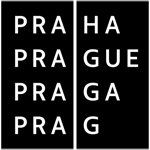A9 Brahms. Reinecke
CZK 1 300 | 900 | 700 | 500 (SL/E*) | CZK 200 (ST*)
*SL/E partial view and organ gallery above the stage
*ST standing
Our season dedicated to Johannes Brahms comes to a close with two of his works, the first of which is the Tragic Overture from 1880. This was written at roughly the same time as another of Brahms’s concerto overtures, the Academic Festival Overture. These two contrasting pieces were premiered on the same evening and so the word “tragic” was inserted primarily to distinguish these two compositions. The work is indeed very dramatic though it is not related to any tragic story or event.
The end of the season will then be seen out with Brahms’s last symphony, Symphony No. 4 in E minor, Op. 98. Brahms needed only four works in this genre to earn the reputation as a great symphonist: and his Fourth Symphony shows us exactly why. It is proof that Brahms was a master of form who was capable of constructing a coherent, organic whole. In his last symphony he holds the listener’s attention from the expansive, ardent introduction to the opulent harmonies at the end.
These two opuses by Brahms are interspersed with Carl Reinecke’s Concerto for Harp and Orchestra in E minor. This acclaimed German composer, conductor and pianist was the teacher of Max Bruch, Edvard Grieg and Leoš Janáček. During his time as Chief Conductor at the Leipzig Gewandhaus he premiered works such as the final version of Brahms’s German Requiem.
We will hear Reinecke’s Concerto for Harp and Orchestra in E minor performed by one of today’s most renowned harpists, Emmanuel Ceysson.











